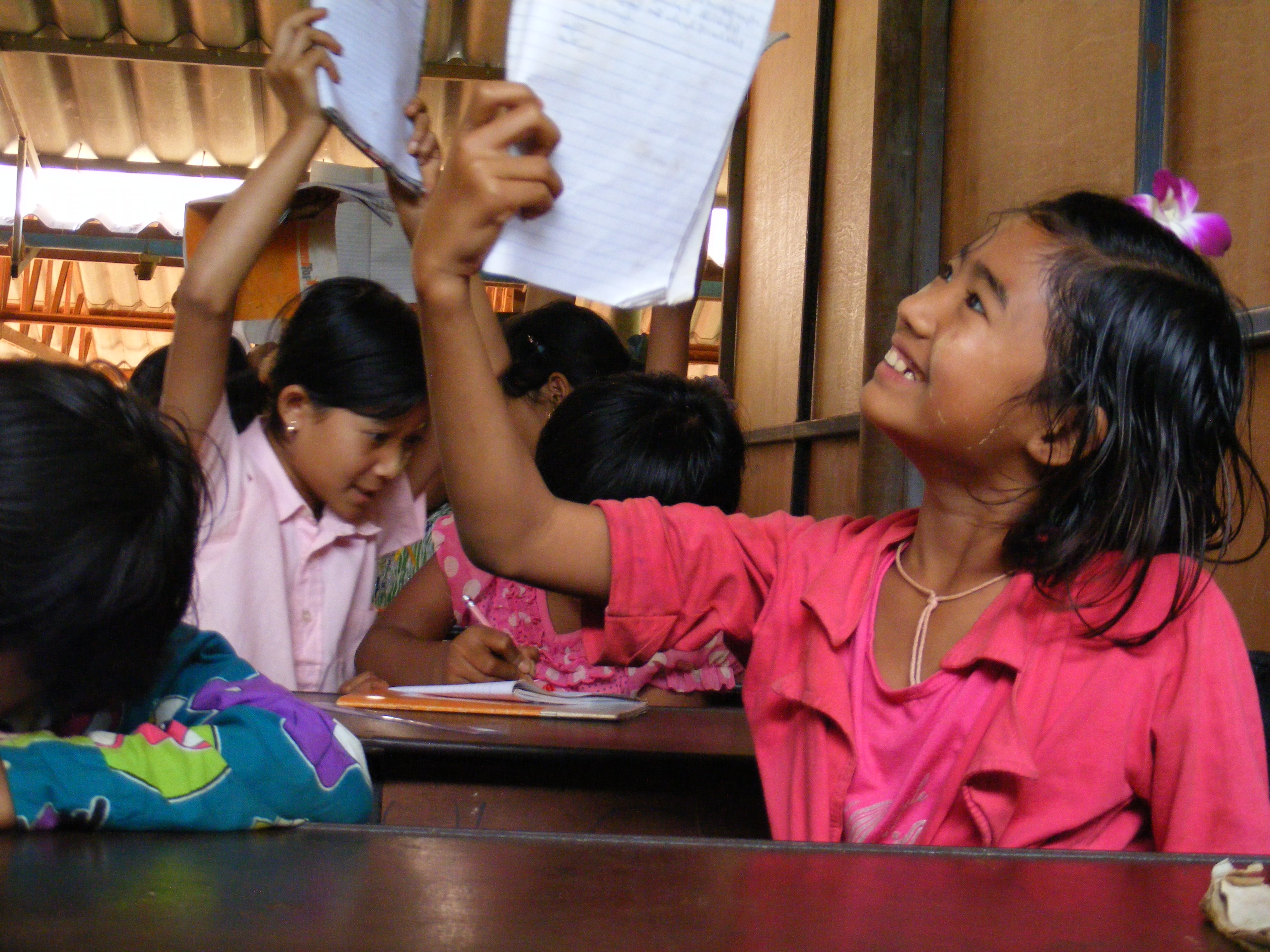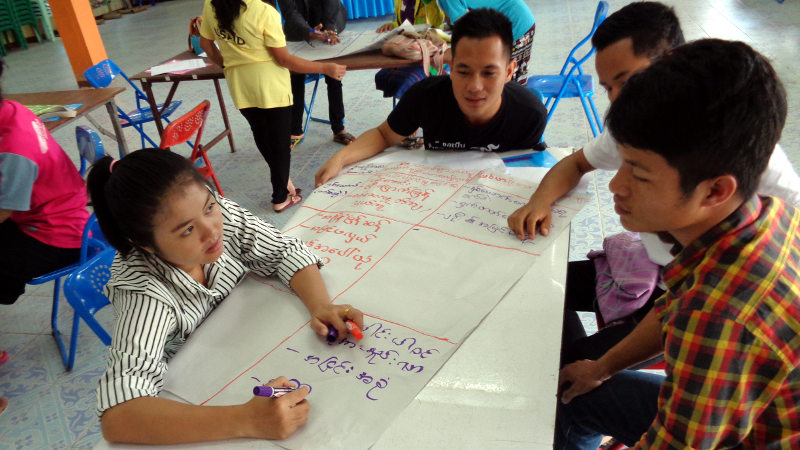
Student-centered learning through quality teacher support results in more engaged students and satisfied teachers, improving general education in Migrant Learning Centers.
The quality of education in migrant learning centers (MLCs) varies in the Mae Sot area due to the lack of a governing body to establish, monitor and uphold standards. In response to this, World Education developed the Master Trainer program, which was noted as a significant contributor to teacher development and teaching quality in MLCs. In recent years, World Education has shifted its strategy from directly implementing these programs to increasing the capacity of local organizations to carry out these functions.
When looking for such an organization, World Education quickly identified Mobile Education Partnerships (MEP), who, since 2002, have been providing teacher training in displaced, refugee, and migrant communities in Thailand and Myanmar. This began the partnership between World Education and MEP to transfer implementation of the Master Trainer program.
Through the Project for Local Empowerment (PLE), MEP works with early grade teachers at targeted schools in migrant communities in Mae Sot and Phop Phra. They work in cooperation with the Burmese Migrant Workers’ Education Committee (BMWEC) and the Migrant Education Coordination Center (MECC) in order to increase teacher confidence, improve teaching quality and enhance student learning experiences in MLCs.
With PLE support, MEP develops materials specific to the needs of teachers and schools, delivers intensive one-week trainings, and provides ongoing support through skills workshops and classroom observation and feedback. Teacher assessment tools have been designed with ASEAN-based competencies in mind to provide specific, timely, and actionable feedback.
To support MEP’s management of the teacher training program, PLE has provided organizational development support within the domains of information management, financial management and resource management.
PLE has fully supported the training and in-class support for 60 migrant teachers, affecting more than 2,000 migrant school children. As a result, teacher quality improvements have led to improved learning in classrooms across Mae Sot.

MEP’s Mission/Vision: Supporting education in disadvantaged communities in Southeast Asia
Link to PLE Strategy: MEP (formerly known as Burma Education Partnership or BEP) delivers teacher training to displaced persons from Burma and migrant communities on the Thailand-Burma border. Since 2002, MEP has developed a ‘professional partnership’ training model wherein MEP trainers work alongside local teachers in the classroom helping with lesson preparation, demonstrating new skills and team teaching. PLE’s support to MEP in this final project year enables them to work with early grade teachers at targeted schools in migrant communities in order to increase teaching quality and student learning experiences.
Partnership period: 01 October 2015 – 31 July 2017
Project location(s): Thai-Burma Border
Project beneficiaries (direct & indirect): Migrant children and teachers in the Mae Sot area
